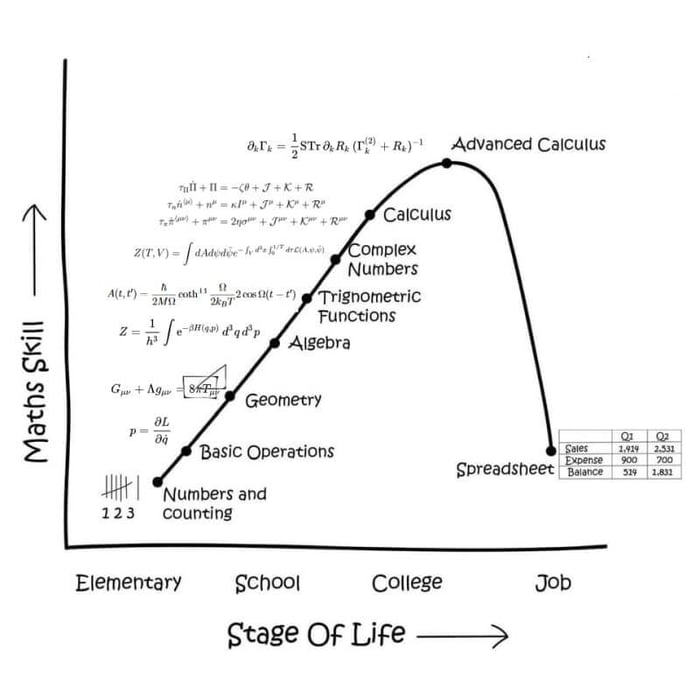So I have no idea who created this image (𝙣𝙤𝙩 𝙢𝙚),
but I saw it posted recently and it made me think...
It's funny b/c it's true of course (for most us),
but IMO it also parallels our financial modeling lives as well:
Early on:
◼️ learn some basic Excel
◼️ learn basic Accounting & Finance
◼️ slap together a horrible model
◼️ go down the Excel rabbit hole — advanced formulas, VBA, etc.
◼️ have a bunch of stuff overcomplicate and break
◼️ improve your business knowledge (this is key 🔑)
◼️ make models simple again
I don't know how it was for you early in your career,
but for me there was this implied complexity to modeling.
Only true wizards could make these sophisticated machines.
As I progressed I realized the opposite was true.
The model could only be understood by one person — its creator.
And everyone else just assumed it was good b/c it was complicated.
———
Now don't get me wrong, some models 𝙖𝙧𝙚 complicated (M&A roll-up, anyone?),
but the rest of the time I ask myself,
how can I build this with as 𝙛𝙚𝙬 moving parts as possible?
Where are the points of failure?
How can I spend as 𝙡𝙞𝙩𝙩𝙡𝙚 time with this thing as possible?
———
I know a Ferrari can take me much farther than a bicycle,
but if I only need to go a few miles, a bicycle is fine.
———
About Me -- If you've never seen my stuff before, I'm Chris -- from skyscraper to Solopreneur -- I help middle market companies with M&A and FP&A.
I also teach Financial Modeling (like a human, not a textbook).
Here are the 3 best ways I can help you:
1. Learn the Basic 3 Statements in 45 minutes
2. Download my Advanced 3 Statement Template (great for FP&A pros)
3. Learn to model like a Private Equity pro
Until next time.
--Chris

